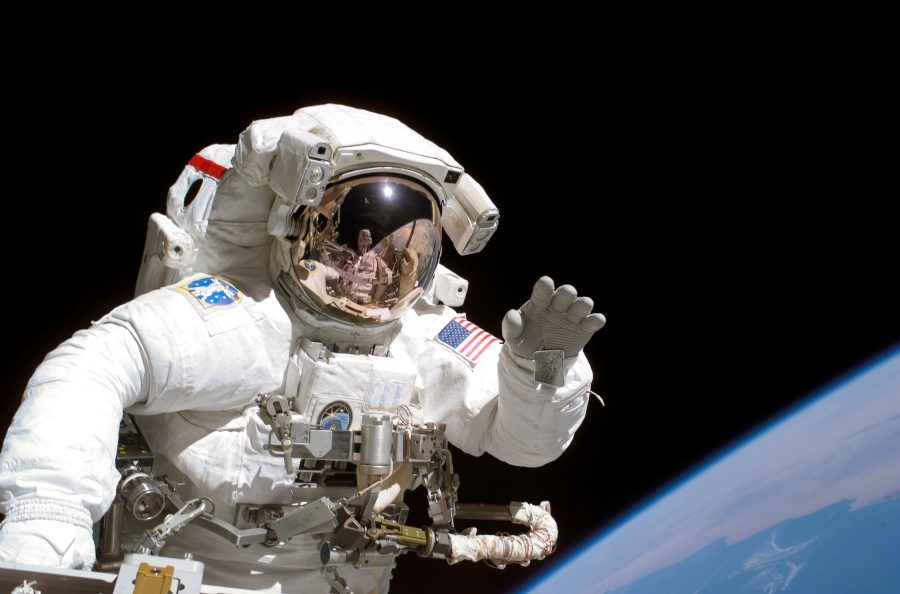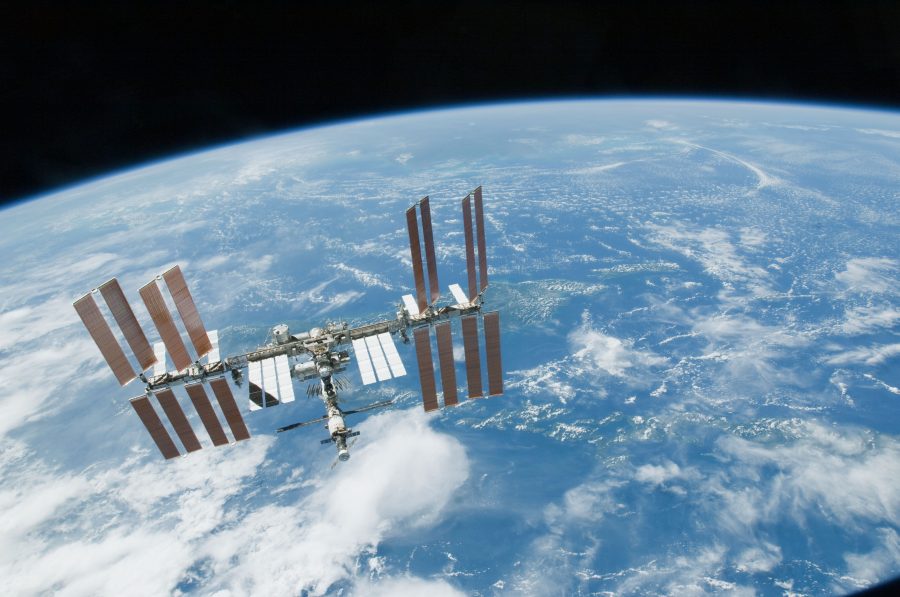This week, NASA researchers have shown that humans living long periods of time in space develop a rare neurological syndrome that makes the brain shift upward in the skull, and eliminates the fluid that surrounds and protects it.
The liquid that covers the brain is called cerebrospinal fluid, and it seems to be there not just thanks to our anatomy. The National Aeronautics and Space Administration suggested in the study that it might also be due to gravity.

The part of the brain that affects the syndrome controls the sight. According to the lead researcher and radiologist at the Medical University of South Carolina, Dr. Donna Roberts, around 40 percent of astronauts reported neurological and visual issues after returning to Earth from space missions — such as blurry vision, swelled optic disks, migraines, and increased head pressure.
It’s still unknown how humans are affected by the visual impairment and intracranial pressure (VIIP) syndrome. But when researchers compared astronauts’ brain scans from before and after they stayed short and long periods of time in space, they realized the notorious changes they suffered.
The study published in the New England Journal of Medicine might affect the way NASA protects the health of people the space agency sends up there.
It’s been 60 years since the first time that humanity was able to reach space, but we’re still discovering the different manners that the human body is affected when it’s in a zero-gravity environment.
Scientists noticed ‘significant changes’ in astronauts
In previous space journies, astronauts reported that they felt their heads under more pressure than before they traveled — as well as other changes in their visions. But in the beginning, experts never understood why they presented these symptoms.
Scientists analyzed MRI scans of 34 astronauts in total. Sixteen of them were compared before and after living a few weeks at NASA’s Space Shuttle. They conducted the same studies to the other group of 18 astronauts, who had spent a couple of months living in the International Space Station — much more time than the first team.
The results showed that the astronauts who stayed longer were the most affected by the syndrome. Thanks to this, VIIP is recognized as an actual phenomenon.
Roberts said that the group who stayed a shorter time in space didn’t experience considerable changes in their brains, but those who lived longer at the ISS presented “some pretty significant changes.” Fortunately, the symptoms tend to disappear once humans get used to the environment and gravity of Earth.
Although this is not the first research performed to analyze which changes the brain suffers when humans go to space, this might be the most extensive study that NASA has done comparing brains before going to space and after returning home. Thanks to it, scientists might be able to find new ways of helping their workers after experiencing health problems.
Just like former astronauts reported suffering from the VIIP’s symptoms, there were others who didn’t present any of the symptoms. Not all people returned home after long-term missions with changes in their visions. This fact, plus this new research, make scientists wonder if there might be some biological feature that makes some astronauts more prone to VIIP than others.
The study seems more relevant now considering Elon Musk’s project to create private space-flights, along with the the first spaceship thought to travel to Mars.
Human body in a zero-gravity environment

Scientists don’t know precisely why VIIP syndrome also affects the sight, but it’s essential they reach a conclusion soon. Just in a few years — months perhaps — NASA plans to send humans back to the moon and to perform the first journey to the fourth and red planet in our Solar System.
If these problems are not resolved, they might affect humans traveling to Mars.
Dr. Roberts said that experts might have to modify spaceships for long-term missions. According to her, the implications would be “whether or not there would be a requirement on a Mars mission to provide some type of artificial gravity.”
The VIIP syndrome is not the only issue humans can develop when they’re not on the Earth. Those who live even short periods in space easily experience bone and muscle weakening. Due to the zero gravity, people don’t work or force these parts of the body as the average human usually does it on Earth.
Also, due to to the lack of gravity, fluids in human bodies don’t follow the same direction as normal. When these don’t have any force pumping them downward, they tend to shift and go up — sometimes, to the brain.
According to Dr. Roberts, something similar to this should be happening to astronauts after spending a long time in space.
“One of our theories is that because there is no longer the force of gravity pulling the brain down, the brain moves upward,” she said in the report.
However, there’s still much of research scientists should do, especially if they want to meet their goal of going to Mars in a few years.
Source: The New England Journal of Medicine
